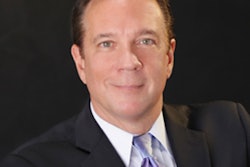
This article from Heritage Financial Consultants draws on the same core materials that are included in the management consulting program for Levin Group clients. By gaining a deeper understanding of their financial situation and the options available to them, dentists can make informed decisions that will enable them to reach their retirement goals sooner.
— Roger P. Levin, DDS
Most dentists find it easier to earn and spend money than to save it. Planning and saving for retirement too often takes a backseat to other priorities. Why is procrastination the rule, rather than the exception, when it comes to retirement planning? I've heard many reasons from my clients:
 John G. McCarthy III is a partner with Heritage Financial Consultants.
John G. McCarthy III is a partner with Heritage Financial Consultants.- Thinking about retirement makes them uncomfortable.
- They're too busy providing oral healthcare to find time to plan.
- They're too young to worry about retirement.
- Retirement planning is too complicated.
If you find yourself avoiding the subject of retirement planning, it's time to make a change.
Saving for retirement has become more critical than ever before, especially as more companies have reduced or stopped contributing to employees 401(k) funds. As baby boomers reach their 60s and 70s, they are feeling particularly squeezed. Many struggle to save for their children's college educations and their own retirement, while supporting their elderly parents at the same time.
Personal savings will have to fill the gap between your retirement plan and government benefits on the one hand, and your retirement needs on the other. Yet the 2014 Retirement Confidence Survey, conducted by the Employee Benefit Research Institute, found that less than 44% of today's workers have actually calculated the amount of money they need for retirement, and 36% of workers said they have saved less than $1,000 for retirement. Even though dentists earn higher incomes than many people, they still have the same issues as most working adults -- poor retirement planning and too little money put aside for their retirement years.
Setting goals
Setting specific goals should be at the heart of your overall retirement planning strategy. That means figuring out when you want to retire and what kind of lifestyle you expect to maintain in your postemployment years. Those answers will, in turn, help you determine how much money you'll need at retirement.
One rule says that in each year of retirement you'll need 70% of your annual preretirement income. Of course, your financial needs may be higher or lower, depending on your individual circumstances. Speaking with a financial planning professional can help you make projections based on your income, savings, debt obligations, spending habits, and other factors.
Investment strategy
Your investment strategy should be shaped by your age, time frame, tolerance for risk, and personal investment philosophy. Remember that time can be your ally. By starting to save sooner rather than later, you have the potential to generate a larger nest egg down the road because of the power of compounding investment returns. With compounding, the growth in an investment's value is computed on the sum of the original investment plus the continual reinvestment of dividends or interest it generates. The benefits of compounding increase with time. This is why even younger dentists who may still be paying off education loans should try to begin setting money aside for retirement.
Retirement investing generally means long-term investing. If you can afford to tie up your money for a relatively long period, you can take on more risk with your investments. Too many dentists are conservative -- stashing their savings in certificates of deposit (CDs) and money market funds, for instance -- which may leave them cash-poor at retirement time. These CDs are insured by the Federal Deposit Insurance Corporation (FDIC) and generally provide a fixed rate of return for a given period of time, usually between six months and five years. Money-market funds are not insured and invest mostly in low-risk securities such as U.S. Treasury bills, and their yields are pegged to short-term interest rates.
A well-balanced, diversified portfolio of stocks, bonds, and other investment vehicles is more likely to help you move toward your retirement planning goals. Despite the fluctuations of the stock market, many investment advisers adhere to the maxim that stocks are a good choice for long-term investments.
Types of investments
Each investment vehicle has different characteristics. Stocks can have fluctuating principal and returns based on changing market conditions. The prices of small company stocks generally are more volatile than those of large company stocks. Bonds -- subject to inflation, credit, and interest rate risks -- have fixed principal value and yield if held to maturity.
If you don't have the stomach for buying individual stocks and bonds outright, consider mutual funds. They offer a combination of professional management expertise plus ready-made diversification. With several thousand from which to choose, there are funds for practically every conceivable investment objective. Some funds seek capital appreciation, others emphasize paying income, and still others combine these goals.
Variable annuities, which offer the potential for a stream of income in the future, are another popular way to invest retirement savings. Under these contracts, the money you invest builds up free of current income taxes. The taxes are deferred until you take the money out later, usually at retirement. Variable annuities combine aspects of insurance and investment accounts and also offer a variety of choices. Withdrawing annuity money before age 59 and a half may result in a 10% early withdrawal penalty and income taxes.
Achieve your goals
Setting up a retirement planning strategy -- including not only practice transition but also financial preparations -- should be a top priority. More than ever, it's up to you to achieve your retirement goals. Speak to a qualified financial planner about the appropriate way to build your nest egg and to learn which investment options make the most sense for you.
John G. McCarthy III is a partner with Heritage Financial Consultants and a registered representative of Lincoln Financial Advisors. He can be reached at 410-771-5677. Heritage Financial Consultants is not an affiliate of Lincoln Financial Advisors. Lincoln Financial Advisors does not provide legal or tax advice.
Note: Mutual funds and variable annuities are offered by prospectus. An investor should carefully consider the investment objectives, risks, charges, and expenses of a mutual fund and a variable annuity and the underlying fund options of the variable annuity before investing. Read a prospectus carefully before you invest. The investment return and principal value of an investment will fluctuate with changes in market conditions, so that an investor's shares when redeemed may be worth more or less than the original amount invested.
Disclaimer: The comments in this article are not meant to be taken as financial advice. DrBicuspid.com and the Levin Financial Group recommend that you always consult with your financial planner before making any significant changes in your financial situation.
The comments and observations expressed herein do not necessarily reflect the opinions of DrBicuspid.com, nor should they be construed as an endorsement or admonishment of any particular idea, vendor, or organization.


















